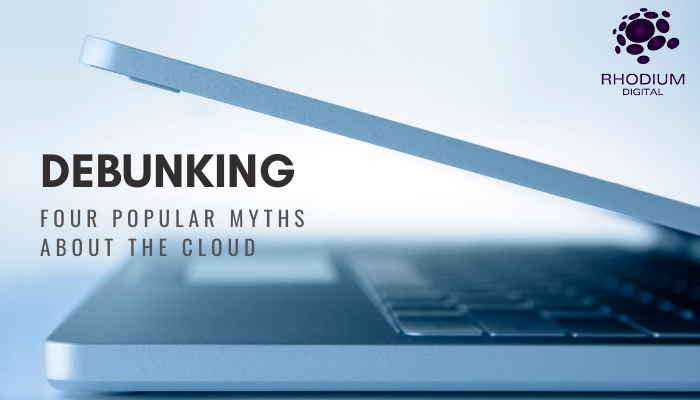ERP cloud computing software can lead to significant cost savings, process improvements, greater security, and overall efficiency in achieving your business goals.
The key to maximizing the potential of the cloud for your business is separating fact from fiction. To help you do just that, let’s address 4 common myths about cloud ERP.
Myth #1: Adopting cloud-based software will always save you money.
While migrating to the cloud can save money, it is not guaranteed. Studies suggest that moving to cloud-based software does have a high likelihood of saving a company money. Of companies surveyed, 82% report saving money by moving to the cloud and 14% of companies were able to downsize their IT after adopting the cloud (Source: “20 Cloud Computing Statistics Every CIO Should Know,” by Jack Woods).
However, business leaders must be aware of the cost for management as the new system is adopted, as moving to the cloud may not instantly guarantee cost savings. Over time, companies can work to improve their cloud cost management in order to save money. For example, shutting down unused workloads, selecting low-cost clouds or regions, and monitoring utilization and rightsizing instances are ways that companies can create significant opportunity for cost savings.
Myth #2 The cloud is less secure than on-premise options
Cloud computing has a whole suite of security benefits that are often overlooked. The cloud offers excellent and cost-effective backup and recovery solutions. The cloud is also able to store documents centrally, ensuring you avoid the pitfalls of having employees email documents back and forth. Non-cloud based approaches often lead to confusion and inefficiencies with employees referencing and exchanging outdated versions of business documents or critical numbers. These exchanges also increase the chance of a security breach with documents being emailed around with great frequency. And while lost laptops are a billion dollar business problem, cloud computing mitigates some of the biggest consequences of this problem. Since data is stored in the cloud, it’s not lost when the laptop is lost. The cloud also provides ways to remotely wipe data from lost laptops, increasing your security. As always, do your research when selecting a solution, and have cloud providers demonstrate their security capabilities before you make a final selection.
Myth #3 Migrating to the cloud is a business solution in itself
Sometimes companies move to the cloud simply because they believe they should. This, however, is not a cloud strategy. Like anything, moving to cloud computing isn’t going to help anything if you don’t understand why you’re doing it and if you don’t have a plan.
Identifying business goals is the first step of the journey; then, you can apply this knowledge to how moving to the cloud can help you achieve these goals. Take the time to map the potential benefits, and review how to mitigate any potential drawbacks. Remember, it’s hard to measure success and direction if you don’t outline a goal, making it tough to tell if the cloud is providing tangible benefits
Myth #4 We need to choose one vendor for all our cloud needs
Cloud computing is an umbrella term that covers many different functionalities and options. It’s ok to use different providers and applications for different services, and to adjust as your requirements change. In fact, we recommend you adjust your cloud applications based on your changing organizational needs and usage. What’s important is to select a cloud solution that can flexibly integrate with other applications. As stated in “20 Cloud Computing Statistics Every CIO Should Know,” by Jack Woods, an organization uses 545 different cloud services. Flexibility and seamless integration are important features you need to consider when looking to maximize, and future-proof, your cloud-based business solution.
In conclusion, it’s worthwhile to consider migrating to the cloud. Whether you’re new to the cloud, or already using it, make sure to take the time to evaluate your usage:
- Are you managing your cloud costs effectively?
- Have you identified a business goal or goals that the cloud is helping you to achieve?
- Have you done your due diligence on your cloud service provider’s security capabilities?
- Are you taking advantage of all the ways the cloud can provide your company with security?
- Do you have a vendor plan that addresses your various needs efficiently and effectively?
- And, finally, do you have policies in place to revisit your plans periodically to be sure you’re taking advantage of the cloud’s flexibility?
If you’re doing these things, the benefits of cloud computing will hardly be fiction; instead, they’ll be hard fact.



